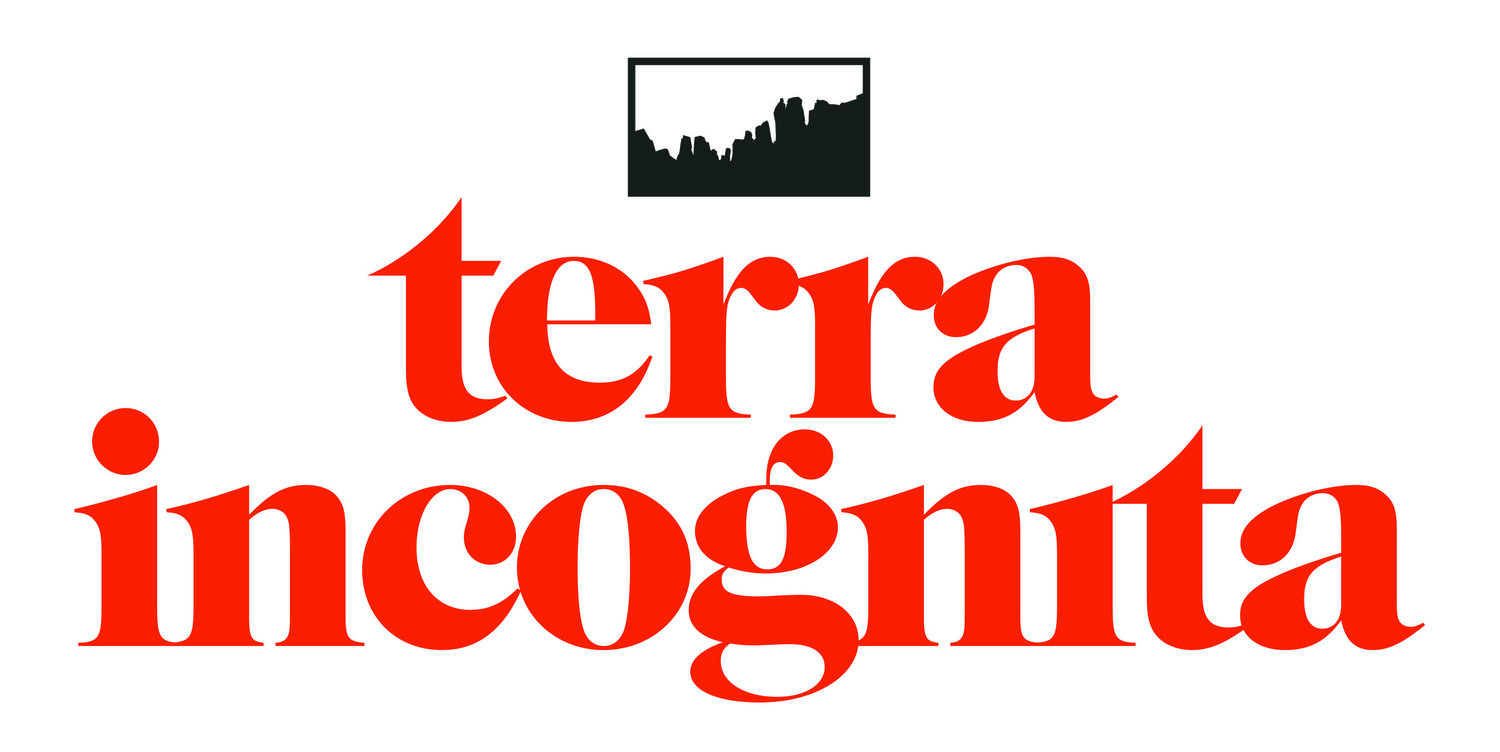Interrupting Oppression 101 Workshop
Featured photo by Lorena-Jasis Wallace. Image description: An easel white board stands in the forefront and reads, "Interrupting Oppression 101," while workshop participants in the background sit at picnic tables with their heads down and writing.
Instead of sitting at a table that we don’t even want to be a part of, we are creating something new.
Last night at Terra Incognita Media’s first “Interrupting Oppression 101” workshop, Larissa Nez and Lorena Jasis-Wallace, and myself, co-facilitated discussions surrounding how to address privilege, de-center whiteness, dismantle white supremacy, acknowledge the land we are on, and how to be accountable to Indigenous peoples. The only snafu was that since the space was not reserved, on the other side of the covered-patio was a bunch of loud, beer-drinking, white, middle-aged men conducting their weekly baseball meeting. What could be more complimentary to an “Interrupting Oppression” workshop? Though we had to deal with their grunts throughout the evening, there was no heckling. Fortunately, everyone who came for the workshop was understanding. Intimate, meaningful conversations were still able to take place.
Larissa Nez started us off with a discussion about Land Acknowledgement. A Land Acknowledgement “is a formal statement that recognizes the unique and enduring relationship that exists between Indigenous Peoples and their traditional territories.” Colonization is not past tense, and it is important for everyone to understand how they came to reside on the land they are on. Land Acknowledgment should and can easily be done before an event, meeting, or festival. Plaques have also been made to hang outside of organizations’ and businesses’ offices. It is also necessary to know the land in which you are visiting when hiking, climbing, kayaking, skiing, etc. Shifting the outdoor narrative from “exploration,” “adventure,” and “discovery,” to being guests on Indigenous peoples’ land is everyone’s responsibility and moral obligation.
Indigenous land rights and Indigenous voices often go white-washed. One participant of the evening, Marissa Naranjo, Santa Clara Pueblo, brought up the issue of Bear Lodge (Devil’s Tower), a sacred site and national monument in northeastern Wyoming. Naranjo says,
“Devil’s Tower, or Bear Lodge, as it’s known to multiple Northern Plains tribal nations is just one of hundreds of Indigenous sacred sites that have been stolen, renamed, and opened as a national park for public recreational use. Decolonizing outdoor recreation means not only acknowledging ceded and unceded tribal territories, it means constantly, actively dismantling the systems that continually profit from the invisibility that prevents our tribal nations from leading the conversation about stewardship of our ancestral homelands. Out of deep respect for these places and the spirits within, we’ve had to aggressively protect our life-affirming resources from desecration and destruction at the hands of settlers. The goal isn’t necessarily to create enemies or kick everyone out of these spaces, it always has been to teach and empower one another to understand that we are all part of a bigger picture of relationships – a story that extends from and to time immemorial, with our actions right now having very real consequences for our future generations. Hopefully, in a small way, this informs why, in the case of Bear Lodge, tribal leaders chose to make outdoor recreationalists think twice about use during peak ceremony season: instead of fighting to close the park during that time, they chose to make access voluntary in the spirit of relationship and teaching. That is thinking outside ourselves and that’s the entire point.”
Many climbers purport that this issue is not “black and white,” or that there is a choice. However, this white-washing of the situation leaves white people unaccountable for their participation in ongoing colonialism. The continuation of climbing during peak ceremony season shows the lack of respect for Indigenous practices. We owe it to Indigenous peoples’ for the work and stewardship they have done to protect the land from resource extraction and exploitation for centuries. Forget thanking Patagonia. Indigenous Peoples’ have been doing this long before Yvon Choiunard was in diapers.
Lorena Jasis-Wallace took us into a discussion about Peggy McIntosh’s concept of the “Invisible Knapsack,” which addresses the ways in which privilege shows up tangibly and intangibly. We discussed examples of privilege from obvious manifestations of being able-bodied, to not so obvious privileges like, “I can rely on feeling safe anywhere I go,” or coming from a two-parent household. It’s not just race, class, or gender. It’s race, class, gender, ability, sexuality, etc. all at the same time. We were getting at the term, “intersectionality,” which Kimberle Crenshaw coined in 1989. The workings of capitalism, imperialism, and patriarchy materialize in the outdoor industry from the cost of entry to gyms, classes, and gear, to the exclusion and invisibilization of Indigenous peoples’, to the white-centered narratives, to the toxic masculinity that permeates throughout these spaces. Acknowledging and being able to identify what bell hooks refers to as, “imperialist-white supremacist-capitalist-patriarchy,” in outdoor spaces/organizations/workplaces/meetings/events, is the first step.
After two hours of listening, learning, and discussion, it was unanimous that we would continue these workshops at least once a month, and in a different, quieter location. We are working with the Independent Publishing Resource Center in Portland, Oregon to host a workshop. We would love to extend these workshops across the country in the future. Cheers to having nuanced, complex, and inclusive discussions that turn into action. #weaponizeyourprivilege



